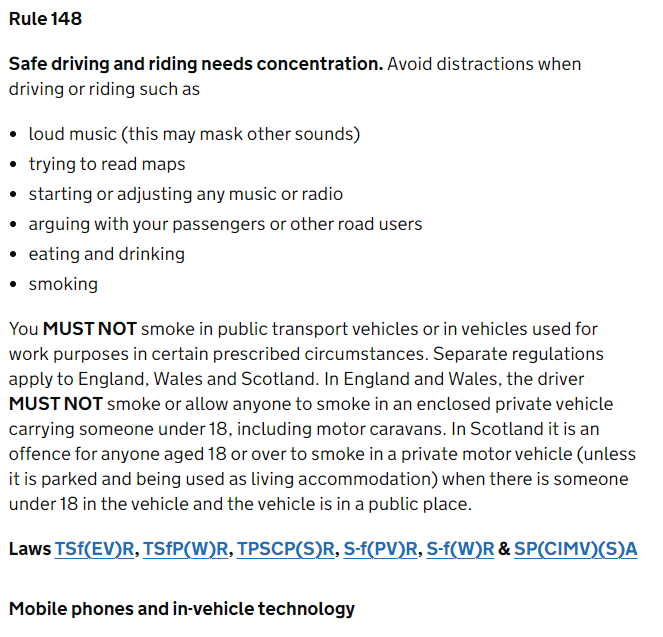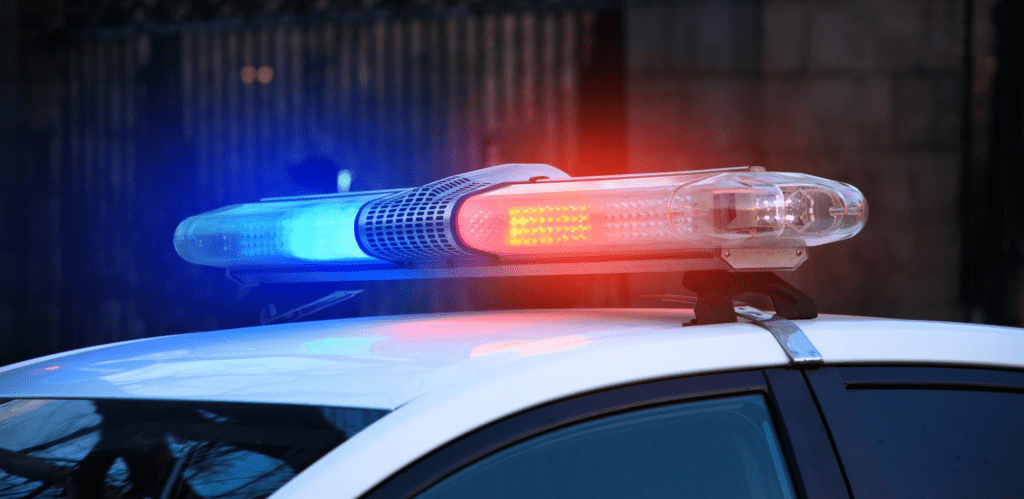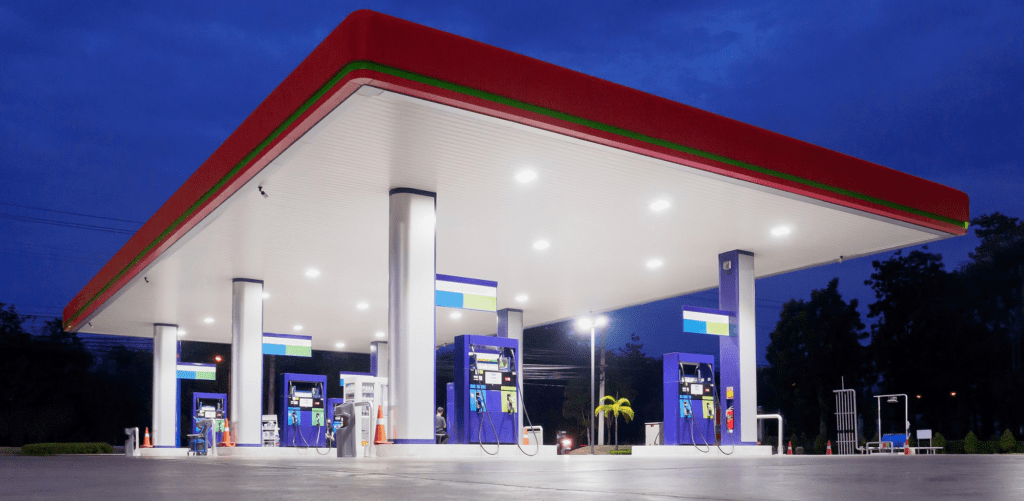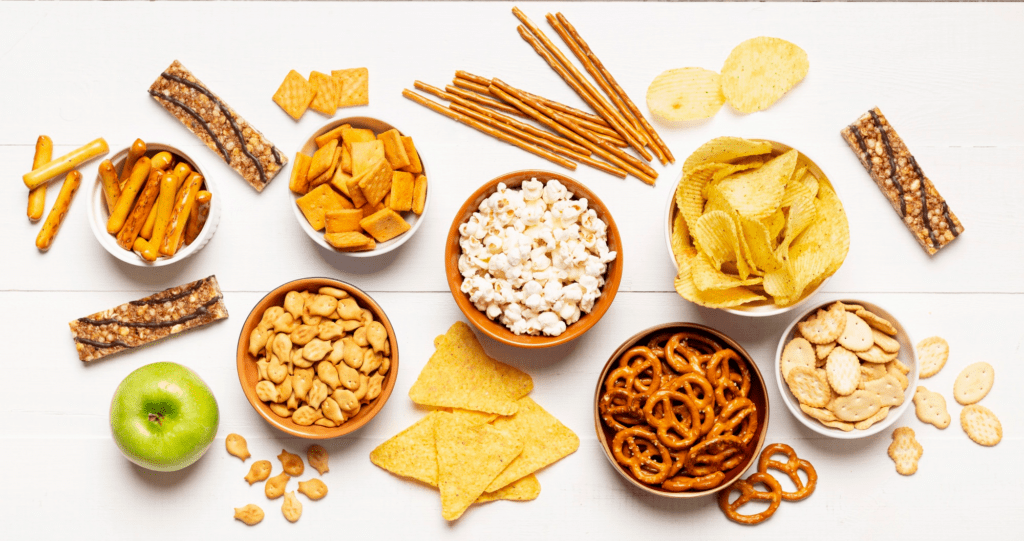There’s nothing quite like the exhilaration of cruising down an open road, where the worries of life drift away, and the possibilities seem endless. The sun shining, a perfect soundtrack playing on the radio, and a tempting snack in the glovebox—life is good, right?
Well, hold on just a moment! Before you indulge in that on-the-go feast, it’s important to recognise that eating while driving is far riskier than it appears. Juggling food behind the wheel often demands the use of at least one hand, leading to a loss of focus on the road ahead.
While there isn’t a specific law prohibiting snacking while driving, it’s crucial to understand that such behaviour may violate existing motoring offences.
Yes, that innocent-looking cheese sandwich could result in a hefty fine and penalty points on your driving licence. A fleeting moment of indulgence on your lips could haunt your driving record for a staggering four years!
But fret not! We’re here to enlighten you on the rules and provide some handy tips to help you curb those cravings and ensure your safety on the road. Let’s embark on this journey together!
What’s the law?
When it comes to clarifying any aspect of driving that you may be unsure about, The Highway Code is your go-to manual. This comprehensive and wide-ranging document covers all the information and rules you need to know about the road. And yes, it does address the topic of eating while driving.
To save you the trouble of going through the entire manual, let us provide a helping hand. Rule 148 is particularly relevant here. Under the section of ‘driving without due care and attention‘, the manual states: “Avoid distractions when driving or riding, such as […] eating and drinking.”

Learn more about Rule 148 of the Highway Code
Now, some of you sticklers for semantics may argue that the word ‘avoid‘ implies advice rather than a strict order. While it’s true that advice from the Highway Code is always worth heeding, the level of strictness in these rules may indeed be open to interpretation.
The Highway Code doesn’t necessarily translate directly into transport laws. However, that doesn’t mean you can disregard the matter entirely.
Allow us to introduce you to the concept of ‘distracted driving‘—a somewhat ambiguous yet highly serious motoring offence. If the police deem that your driving indicates a lack of full attention on the road, they have the power to issue a fixed penalty notice.

This notice could result in a fine of up to £200 and 6 penalty points on your driving licence. Suddenly, that tempting Mars bar doesn’t seem so appealing, does it?
While these laws primarily target the use of mobile phones by drivers, it’s essential to understand that any activity that diverts your attention—whether it’s adjusting the radio or having a snack—can be considered a valid source of distraction.
So, exercise caution and ensure that your focus remains firmly on the road ahead.
What’s the big deal?
Just because a behaviour has become a habit doesn’t mean it’s safe to engage in when your attention should be focused elsewhere. Many of us may consider ourselves adept at multitasking, believing we can unwrap a chocolate bar while smoothly shifting gears on a dual carriageway. However, this kind of behaviour is extremely risky.

When driving, even a momentary lapse in concentration to grab another snack, wipe away crumbs, or dispose of wrappers can have severe consequences—and not just for your finances!
A study conducted by the University of Leeds revealed that people’s reaction times were 44% slower when they consumed food while driving. If a hazard were to appear on the road while you were indulging in a bag of crisps, the additional time it would take for you to respond could lead to fatal outcomes.
Moreover, don’t be among those who believe they can flout the rules simply because they’re stuck in traffic. The police can still intervene even if the car isn’t in motion and for good reason. The act of eating causes visual, manual, and cognitive distractions.
Hazards can arise at any moment, whether the vehicle is moving or stationary, and you must be ready to respond appropriately and promptly. It’s crucial to prioritise your attention and ensure that you’re fully prepared to handle any unexpected situations that may arise on the road.
Making the right choices
We understand that it can be difficult to resist snacking whilst driving, especially when you’re in a rush and pulling over isn’t an option. However, it’s important to make smart choices to reduce the risk of distraction and ensure your safety on the road.
Before starting your journey, it’s a good idea to have a meal or snack to satisfy your hunger and provide you with energy. This will help keep hunger pangs at bay and reduce the temptation to eat whilst driving.

To minimise distractions, prepare your snacks before getting into the car. For example, if you plan on snacking on nuts, open the bag and place it within easy reach so you don’t have to fumble with packaging whilst driving.
In the event of a spill, prioritise your safety and the road. Accept that accidents happen and avoid trying to clean up whilst driving. Instead, when it is safe to do so, pull over and switch off the engine before attending to any spills or messes.
During long drives, it is recommended to have a supply of snacks and water within reach. These can help keep you awake and alert on the road.
If possible, consider travelling with a passenger who can assist you by handing you food, picking up anything you drop, and providing some company. Having a road trip buddy can be helpful and make the journey more enjoyable.
Remember, the safety of yourself and others on the road should always be your top priority. Whenever possible, it’s best to avoid eating whilst driving and focus on the task at hand.
Best foods to eat while driving
When it comes to eating while driving, the type of food you choose can make a significant difference. It’s important to make wise choices to ensure you maintain full control of the vehicle.
Having both hands on the wheel is crucial for safe driving, which can be challenging if you’re trying to handle a sandwich or a roast chicken. It’s best to avoid full meals and opt for small snacks instead.

Ideally, choose something that you can quickly and easily consume, allowing your hands to return to the proper driving position promptly.
Anything that distracts you from giving your full attention to the road poses a significant problem. If you’re extremely hungry and need a substantial meal, it’s advisable to find a safe location to park your car and refuel away from the road. This ensures that your focus remains on driving without compromising your safety or the safety of others.
While drive-thrus may seem like a convenient solution for satisfying your cravings on the go, they can actually present risks. These establishments often encourage eating while driving, but it’s important to remember that their primary concern is serving fast food, not your driving record.
Surprisingly, even something as simple as paying for a cheeseburger at a drive-thru using your phone can result in a fine. It’s simply not worth the potential consequences and distractions that can arise from engaging in such activities while behind the wheel.
It’s best to prioritise your safety and avoid any actions that could lead to legal issues or compromised attention on the road.


